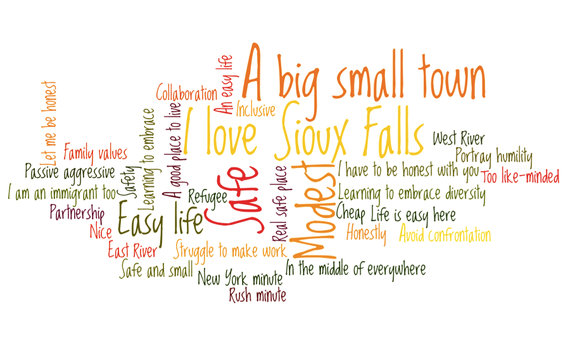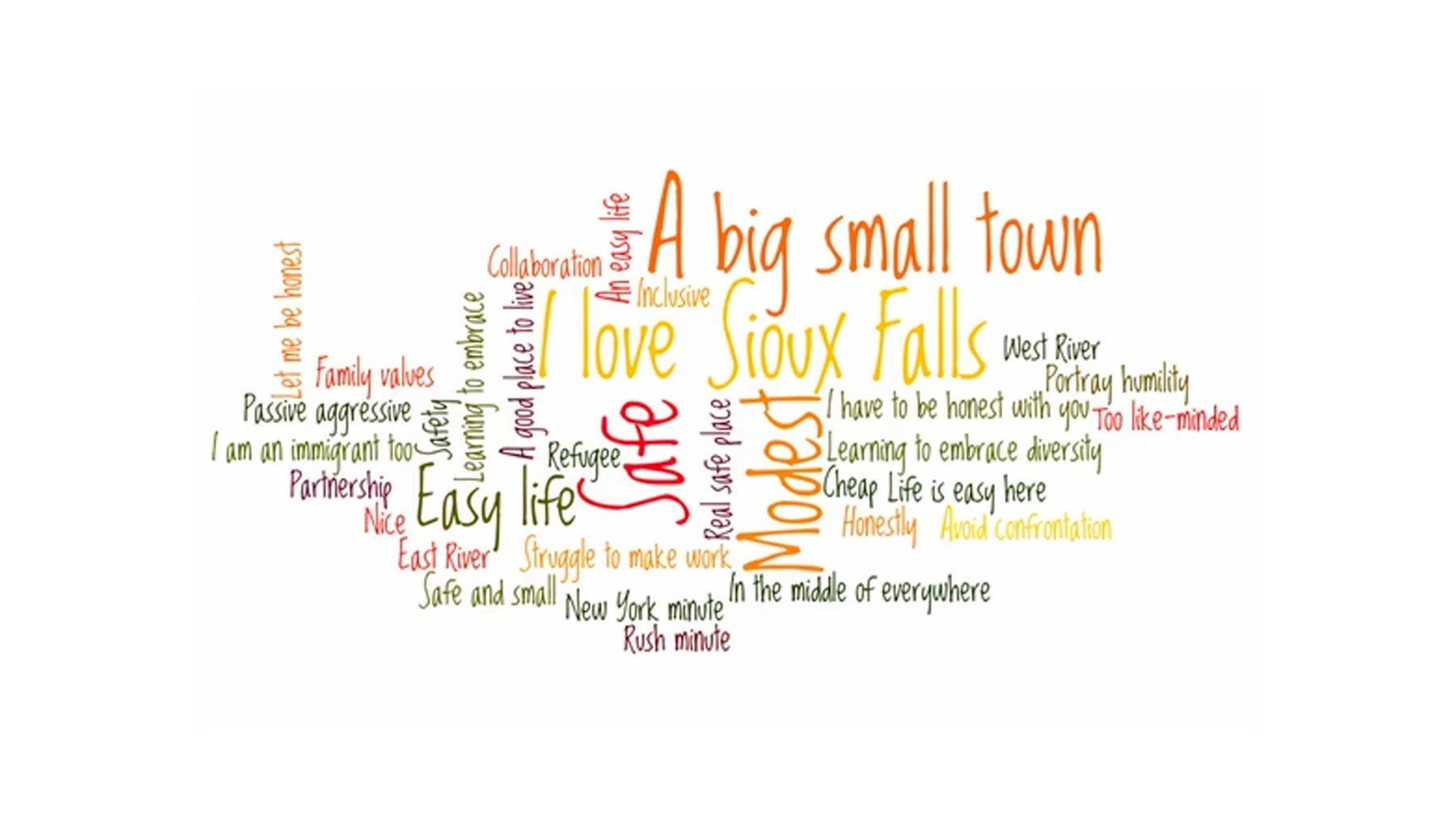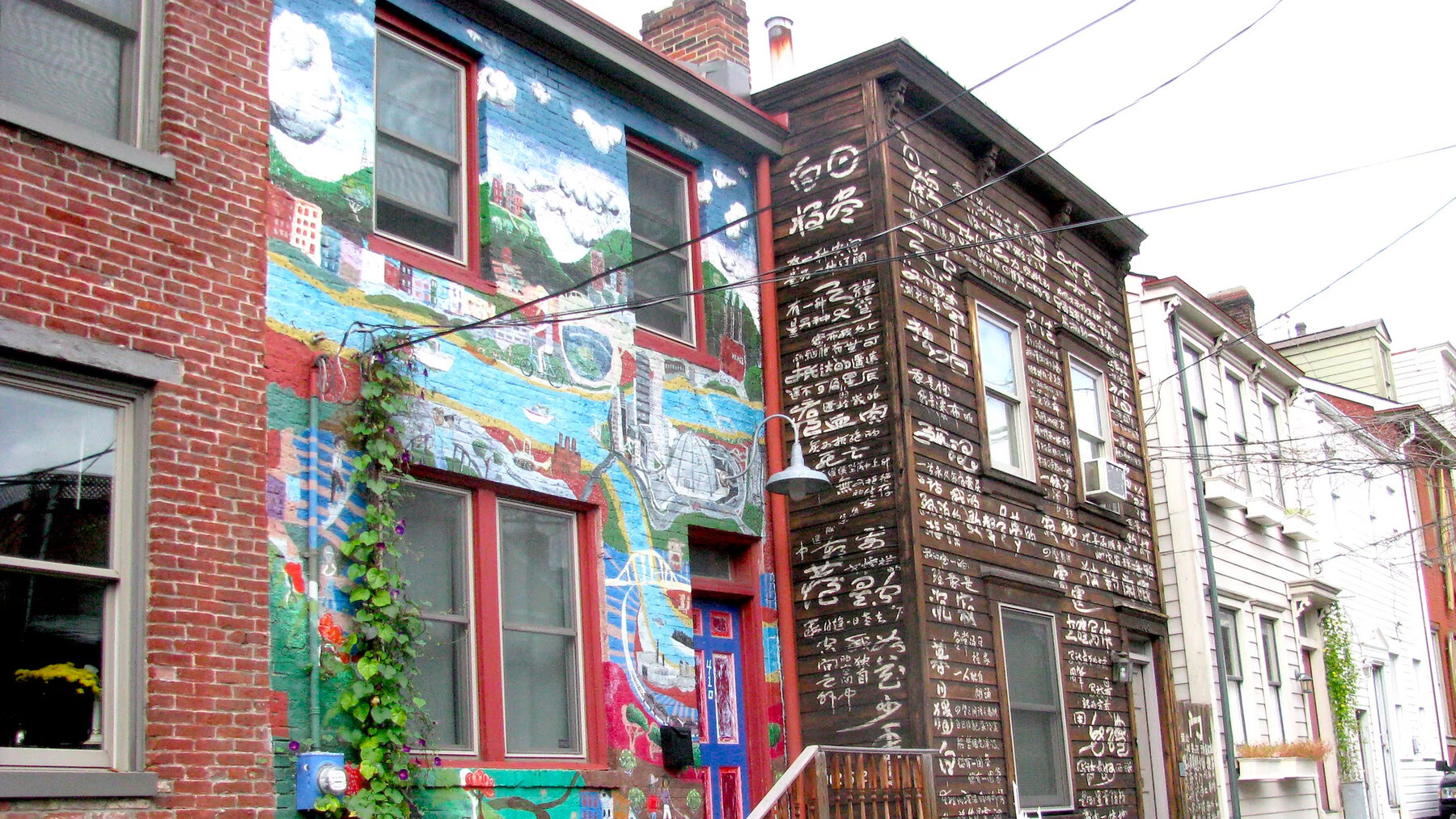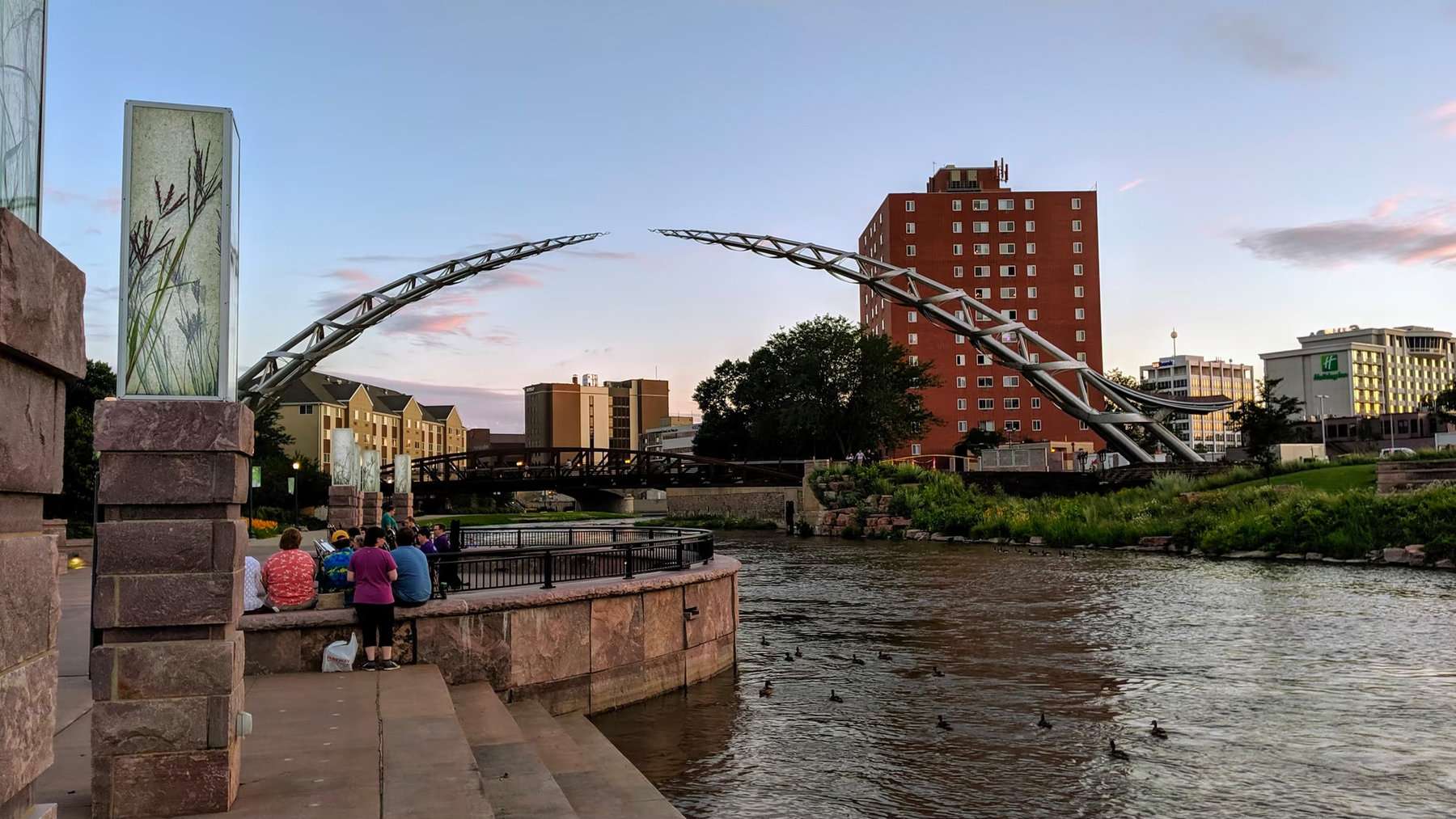It’s time for a little linguistic frolic around the country. In the last 9 months, we’ve flown in our small plane from Wyoming to South Dakota to Maine to the Carolinas to California. There were lots of places in between, and there are lots more to come.
One lesson I’ve learned along the way is that regional language is alive and well. We all know the obvious examples: In the South, it is the accents, of course. In New England, it is classic vocabulary like “wicked,” and in the upper Midwest, there are the grammatical constructions like “Are you coming with?”
I’ve learned another thing, this one from listening to people talk about something very important to them: the particular traits of the place where they live. When people talk about their hometowns, they choose their words and phrases deliberately. It is interesting that there is a small set of common words that pop up everywhere, the ubiquitous words of the era, to be sure. They are words like “community” and “sustainability” and “local.”
t is equally interesting that there are very distinctive vocabulary sets for each town, which are oft-repeated by many people in the town. They form an odd collection: “poised” or “balancing act” or “safe,” for example.
And also, there are statements or questions unique and curious (at least to me), that seem to come out of nowhere and be part of the established lore of the town, like “Have you tried the tap water?” or “Sunday is family day.” People in Greenville SC and Holland MI, do you recognize yourselves?
I decided to do a little experiment with the language. It is an unscientific experiment, to be sure, and the findings wouldn’t stand up in court. But at least to the ears of this beholder, the findings are telling and they ring true.
So, I went through all my notebooks of our visits over the last 9 months to towns around America. I have notes of the interviews and conversations we had with politicians and educators, city administrators, school kids, academics, newspaper editors, and business people. These happened in offices, at factories, or pizza dinners with high school kids, tours at public schools, home visits to refugees, casual encounters in restaurants, at museums, at local shops, and best of all, brewpubs, where talk flows freely.
I assembled lists of words or phrases from each town — all centered around how people describe their towns, or how they point to what is important in their towns.
A subjective exercise? Obviously, Yes. If you read through my notebooks, your lists might look different from mine. I admit all that. Nonetheless, when I worked with John Tierney to throw these words and phrases into an app for a word cloud generator: Voila! The result was a pretty, and to me often clarifying view of a town, from the words of its own people.
Here, as at the top of the post, is Sioux Falls.

And here is what I glean from the word cloud of Sioux Falls:
How we live: Here is the stuff of everyday life. Many Sioux Falls folks said it was important to them that Sioux Falls was a safe town. Safe, Safety, a real safe place were all variations of this sentiment.
This came from all sorts of people: the home-grown teen-agers (and their parents), who talked about how they never worried about where they went or when. It also came from recently-arrived refugees who were assigned to Sioux Falls after often years in camps around Africa or Asia, or others who had managed to get themselves relocated to Sioux Falls, by way of other less safe cities in the US. Word had gotten around that it was a safe and good place for refugees to settle.
A phrase I hear often was that it was an “easy life” in Sioux Falls, this said with a sense of pride rather than that they were getting a good deal somehow. I think people were referring to logistics here, but the starting points of the residents surprised me. People with jobs and families remarked at how the commutes and drive times were short. And one high school girl, a girl from the Sudan, said that could walk just a mile or so from her house to reach the grocery store, where she both worked and shopped. “A mile, with groceries, in the winter in Sioux Falls,” I remember thinking at the time, and this was her definition of an “easy life.”
And then there’s the pace of life. Many years ago, a Texan first explained to me that a “New York minute” really lasts just a second, as in “Yeah, yeah, hang on; I’ll be ready in a New York minute.” I heard this, and also rush minute in Sioux Falls, as though it needed to be distinguished from the more relaxed pace of daily life.
Who we are: So many words and phrases emerged for identifying the qualities in people that were valued and appreciated in Sioux Falls. The versions of these (in adjective form) are modest, nice, humble, non-confrontational, inclusive.
However, this yang comes with a balancing yin. One person’s nice and humble is another person’s passive-aggressive, and too much like-minded. There are many ways to express this; these were a few I heard.
I think family values probably belongs here, with this group. As someone raised around the Midwest, I thought this description could surely be applied far outside the boundaries of Sioux Falls. Maybe in a radius as far as Ohio. Sioux Falls is a big small town. It is small enough to protect and nurture American values, yet big enough that high school kids say they would like to stay or return to Sioux Falls when they’re older. And everyone else extols the offerings for the arts, higher education, recreation, job possibilities, and the relatively cheap cost of living. (By the way, the line in the word cloud that appears to say “Cheap Life is easy here” is an anomaly. Those were two separate observations that happened to line up together in the cloud.)
The work of our town: It seemed odd to me that I so frequently heard people in Sioux Falls begin their comments with qualifiers like: I’ll have to be honest with you. Honestly. Let’s be honest. These are caveats I’m used to hearing from politicians and people on talk shows, which to me signals something like: you may not usually believe me, but this time I will let you in on the truth. It seemed like a hallmark of people in Sioux Falls that they would always be straightforward; I don’t know why they say this.
Since Sioux Falls has been receiving waves of refugees for settlement there since Vietnam in the 1970s, the issues of refugees and immigrants play large in the civic and cultural identity of the town. The kinds of phrases I heard frequently reflected the complexities: Learning to embrace diversity. And “I am an immigrant, too.” which to my ears, echoed the spirit of JFK’s “Ich bin ein Berliner”.
The efforts to make their town work in an economic and business way emerges in the vocabulary of every town we have visited so far, including Sioux Falls. I would go out on a limb and say that collaboration and partnership are universal words in striving towns.
In at least one sense, Sioux Falls and New York City are similar. In New York, they coined the song for it: “If I can make it there..” etc. You know how it goes. Well, the same sentiment popped up in Sioux Falls. Many people explained that Sioux Falls is the strong focal point, the magnet for people in South Dakota and surrounding areas of the Plains and upper Midwest. And here’s how it sounded: We are in the middle of everywhere. The comment applies to business as well. This is a regional center for retail, medical care, professional services, entertainment, and other urban functions for a broad area. It also serves as a call-center hub for many credit-card companies and other nationwide firms.
The random: If I heard this once, I heard it a thousand times: the references to East River and West River. I am sure everyone in South Dakota knows this, but for the rest of you, this refers to the Missouri River, which splits the state in half, not only geographically but also culturally, historically, politically, agriculturally, and economically. You could barely refer to it enough.
Summing it up. This is very simple, and I also heard it a thousand times: I love Sioux Falls. There is something very plain-spoken and true that, for me, pretty well sums up how people talk about their town.
This is one word cloud, as dictated by the people of Sioux Falls. There would be lots more smaller clouds in the skies of Sioux Falls, forming around the industries, the arts, education, recreation, invention, civic pride, and on and on.
So, what is your town’s word cloud? We’d like to hear from you. Email me at debfallows at gmail dot com.




